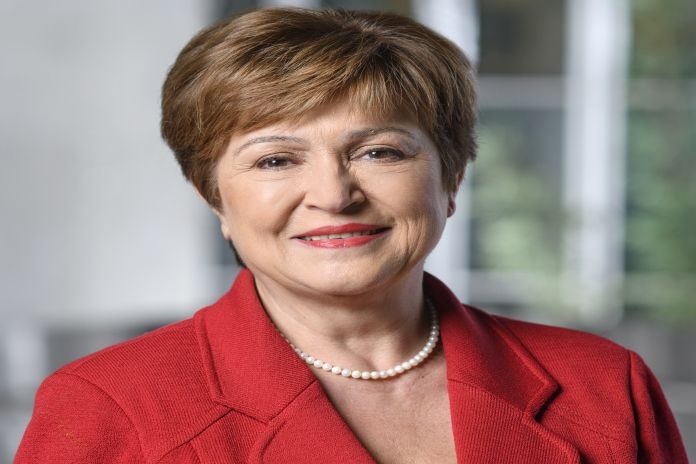WASHINGTON, USA – Kristalina Georgieva, managing director of the International Monetary Fund (IMF), made the following statement today at the end of the high-level “International Conference on Support to Beirut and the Lebanese People” after the August 4 explosion:
“I would like to thank French president Emmanuel Macron for bringing us together just days after the devastating explosion in Beirut and express heartfelt solidarity with the Lebanese people. It is a terrible tragedy, coming at a terrible time. Lebanon has been struggling with profound economic and social challenges, aggravated by a pandemic, but even more so by the shortage of political will to adopt and implement meaningful reforms the people of Lebanon have been calling for. This is the moment for Lebanese policymakers to unite and address the severe economic and social crisis. It is also a moment for the international community to stand by the country and its people – with urgent humanitarian assistance, and support for reforms to pull Lebanon from the brink of economic collapse.
“Over the last months, we have been engaged intensely with the Lebanese authorities, as well as with civil society and the international community, on a reform package aimed at addressing the deepening crisis, strengthening governance and accountability, and restoring confidence in the economy. Unfortunately, these discussions have yet to yield results.
“We are ready to redouble our efforts. But we need unity of purpose in Lebanon—we need all institutions to come together determined to carry out much-needed reforms.
“First, to restore the solvency of public finances and the soundness of the financial system. Current and future generations of Lebanese must not be saddled with more debts than they can ever repay. This is why the IMF requires debt sustainability as a condition for lending. And the financial system must be solvent—those who benefitted from past excessive returns need to share the burden of bank recapitalization, to protect the life savings of the vast majority of ordinary Lebanese depositors.
“Second, to put in place temporary safeguards to avoid continued capital outflows that would further undermine the financial system while reforms are taking hold. This includes adopting legislation to formalize capital controls in the banking system and eliminate the current multiple exchange rate system to help protect Lebanon’s international reserves while reducing rent-seeking and corruption.
“Third, upfront steps to reduce the protracted losses in many state-owned enterprises. There must be more predictability, transparency, and accountability—with comprehensive audits of key institutions, including the central bank.
“Finally, an expanded social safety net has to be in place to protect the most vulnerable people. They must not be asked to bear the brunt of this crisis.
“Commitment to these reforms will unlock billions of dollars for the benefit of the Lebanese people. This is the moment for the country’s policymakers to act decisively. We stand ready to help.”





